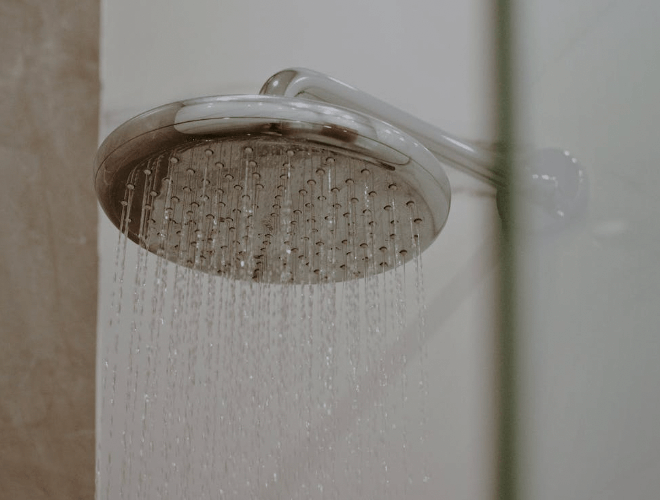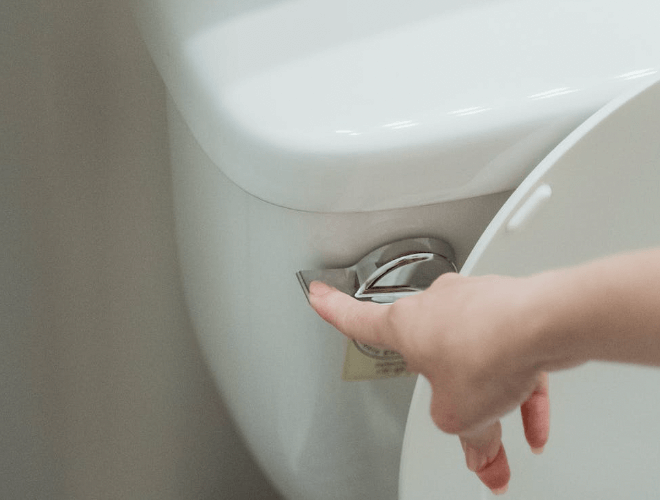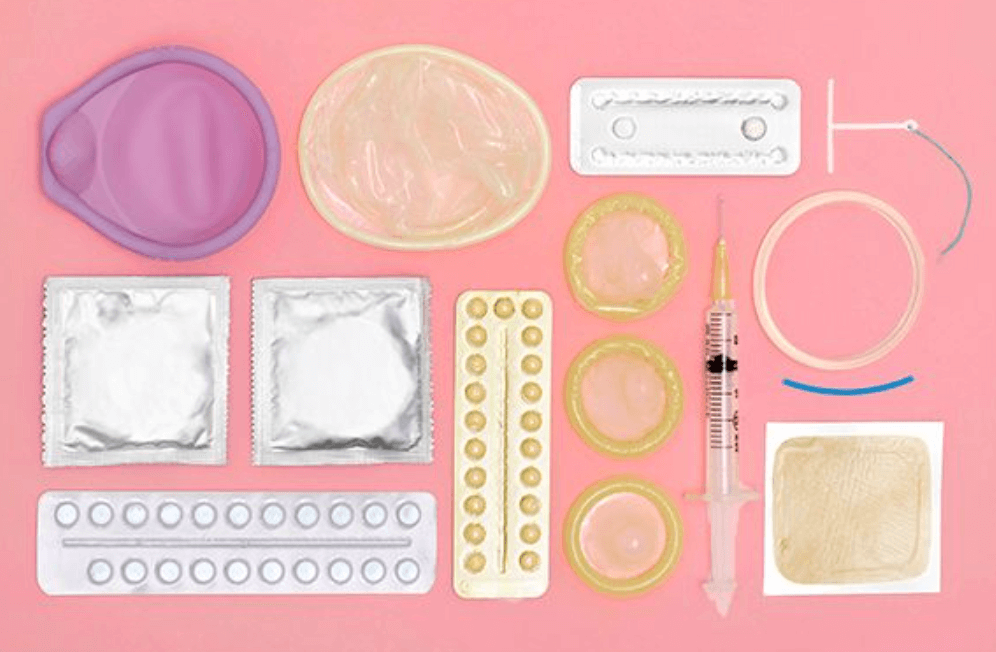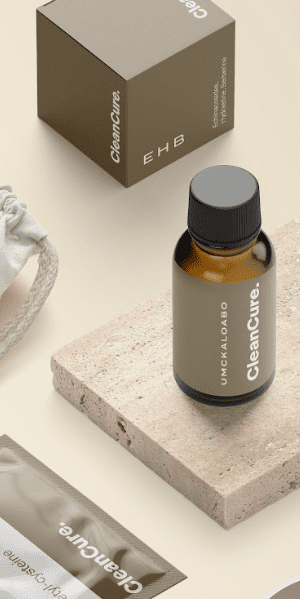
Image Source: Christa Grover // urinary tract infection self care
Are you looking to avoid getting urinary tract infections (UTIs) once again? Good news! There are several self-care strategies you can implement to keep those pesky UTIs at bay.
We at CleanCure will discuss how you can avoid getting UTI once again to maintain urinary tract health through urinary tract infection self care practices– including engaging in good sexual practices, frequently urinating, drinking plenty of fluids, ensuring proper wiping techniques, practicing UTI-safe birth control methods, and wearing proper clothing.
But first, why am I prone to UTIs?
Are you wondering as to why you seem to get urinary tract infections more often than others? Well, there are a few factors that can increase your risk of getting UTIs.
One of the main culprits is sexual intercourse. When you have sex, the bacteria from your genital area can make its way into your urethra, which is the tube that carries urine from your bladder out of your body. This can lead to an infection if those bacteria multiply and cause trouble.
Another reason why some people are prone to UTIs is because of their anatomy. For those with female reproductive organs, the urethra is shorter and closer to the vagina and anus. This means that bacteria from these areas can more easily travel up into the urethra and cause infection.
Other factors that increase your likelihood of getting UTIs include menopause and pregnancy. Changes in hormone levels in postmenopausal women can make the urinary tract more vulnerable to infections. Additionally, hormonal changes and the pressure of the growing baby in pregnant women can hinder proper urine flow and create an environment that is more conducive to bacterial growth.
UTIs can affect anyone, but infections in women are more common due to their anatomy. So if you find yourself dealing with frequent UTIs, know that you’re not alone. It’s always a good idea to talk to a healthcare provider if you’re experiencing recurring infections or have any concerns.
How can you care for yourself at home?
When it comes to taking care of a urinary tract infection (UTI) at home to avoid getting another bladder infection, there are a few things you can do to help yourself feel better, along with natural home treatment for UTIs if you’re into a holistic approach, combined with medical treatment.
Engage In Good Sexual Hygiene

Image Source: Darya Grey_Owl // urinary tract infection self care
When it comes to preventing urinary tract infections (UTIs), good sexual hygiene plays a very important role. UTIs occur when harmful bacteria enter the urinary tract, causing discomfort and often requiring antibiotic treatment. Here are some important practices to help reduce the risk of UTIs:
Urinate before and after sexual activity
This helps flush out any bacteria that may have entered the urethra during intercourse. Barrier contraception, such as condoms, can also provide protection by preventing the spread of bacteria.
Wash the genitals before and after sexual acts
This helps remove any bacteria that may be present on the skin and reduces the risk of infection. Gentle, mild soap and warm water are all you need to keep your genital area clean.
Communicate with your sexual partners about any current or past UTIs
This allows both parties to take necessary precautions and seek prompt medical attention with a reliable healthcare professional if needed. Prevention is always better than cure, so prioritize your health and well-being.
Always Empty Your Bladder On Time

Image Source: Miriam Alonso // urinary tract infection self care
When you hold in your urine for a long time, the urine sits in your bladder, providing a cozy environment for bacteria to multiply. These bacteria can cause bacterial infections in your urinary tract and give rise to uncomfortable symptoms like pain and urgency when you pee.
So when you empty your bladder regularly, you’re not giving bacteria a chance to stick around and wreak havoc. Each time you urinate, you’re flushing out any harmful bacteria that might have entered your urinary tract. This keeps your urinary system clean and reduces the risk of UTIs.
To keep your bladder healthy and prevent UTIs, aim to empty your bladder about four to eight times per day. Remember, even if you don’t feel the need to go, it’s essential to make a habit of visiting the bathroom regularly.
Drink Plenty Of Water

Image Source: Andrea Piacquadio // urinary tract infection self care
When you drink lots of water, it helps to flush out any bacteria that might be hanging around in your urinary system. Think of it as giving your body a good cleaning! Drinking water encourages the flow of urine, which helps to wash away any bacteria that might have entered your urinary tract.
So, how much water should you drink to avoid UTIs? Well, the recommended daily fluid intake for a healthy person is at least 50 ounces or about 1.5 liters (8 glasses of water). That might sound like a lot, but you can easily reach this goal by sipping on water throughout the day or enjoying other liquids mixed with water like unsweetened cranberry juice, herbal tea, or fruit-infused water.
Wipe From The Front To The Back

Image Source: Emma Stoned // urinary tract infection self care
When it comes to wiping after using the bathroom, it’s important to follow the proper technique to keep your urinary tract healthy. One important thing to remember is to always wipe from the front to the back.
Wiping from the front to the back helps to prevent the spread of bacteria. Bacteria from the anus can easily make its way to the urethra and vagina if you wipe the other way around. This can lead to urinary tract infections and other uncomfortable issues.
To make sure you’re wiping correctly, use separate pieces of toilet paper for the genitals and anus. This way, you’re avoiding any cross-contamination between the two areas. Also, be sure to wash your hands before and after using the bathroom to keep bacteria at bay.
Also avoid douching and using scented products, such as feminine hygiene sprays, in the genital area. These products can disrupt the natural balance of good bacteria and increase the risk of infections. Instead, opt for a gentle cleanser or simply wash with water alone.
Switch Your Birth Control Method

Image Source: Everyday Health // urinary tract infection self care
If you frequently experience recurrent bladder infections, it may be helpful to switch your birth control method. UTIs can be uncomfortable and inconvenient, but making a change in your contraceptive methods can help reduce your risk.
Certain methods of birth control, like diaphragms, spermicides, and non-lubricated condoms, can increase the likelihood of developing these chronic infections. This is because these methods can disrupt the natural balance of bacteria in your genital area, making it easier for harmful bacteria to multiply and cause an infection. So, avoid these at all costs.
If you find that your UTIs are happening more often when using one of these contraceptives, seek advice from a medical professional. They can discuss alternative birth control options such as the pill and provide prescription birth control that may be less likely to contribute to UTIs.
Wear Loose-Fitting Underwear

Image Source: Karolina Grabowska // urinary tract infection self care
Tight-fitting clothing and certain fabrics can trap moisture, creating a perfect environment for bacteria to grow. When moisture gets trapped around the genital area, it can create an ideal breeding ground for bacteria that can cause UTIs.
When you wear loose-fitting and cotton-cloth underwear, it helps keep the genital area dry and clean. Cotton is a breathable fabric that allows air to circulate, reducing the buildup of moisture. This helps to create an environment that is less favorable for bacteria to thrive.
Don’t wear super fit clothing as well, even if your underwear is loose– such as wearing tight jeans. This loses the purpose of wearing loose-fitting underwear for UTI prevention in the first place.
Frequently Asked Questions
Is UTI contagious through toilet seats?
UTIs are not contagious through toilet seats. UTIs are caused by bacteria entering the urinary tract, typically from fecal matter. But for an infection to occur, these bacteria need to reach the bladder or kidneys. Simply sitting on a toilet seat won’t lead to the bacteria traveling up into your urinary tract.
While it’s important to practice good hygiene and keep toilet seats clean, you don’t have to worry about catching a UTI from them. UTIs are caused by bacteria entering the urinary tract, and that’s unlikely to happen through contact with a toilet seat.
Can male sperm cause UTI in females?
Male sperm itself does not cause UTIs, but sexual activity can increase the risk of developing a UTI due to the transfer of bacteria from the genital area. During sexual activity, there is a chance that bacteria from the genital area can be introduced into the urethra, the tube that carries urine out of the body. If these bacteria make their way up into the bladder, it can lead to a UTI.
Taking proper precautions, such as urinating before and after sex to help flush out any potential bacteria, can significantly reduce the risk.
Can tampons and pads cause UTI?
Tampons and pads themselves may not directly cause UTIs, but certain factors related to their use can increase the risk. If you don’t change your tampon or pad frequently enough, it can create a moist environment that bacteria love. This could lead to an increased risk of bacterial growth and potentially a UTI.
Some pads and tampons may also not be very absorbent, which means they can hold onto bacteria for longer periods of time. Choosing high-quality, absorbent tampons and pads can help minimize this risk.
Prevent Getting Another UTI Again
Preventing another recurrent infection is important to avoid discomfort and pain. But it also involves practicing good hygiene habits, staying hydrated, wearing cotton underwear, and considering alternative birth control methods.
You can also combine other natural remedies for UTI, such as taking cranberry juice or cranberry supplements, apple cider vinegar, and probiotics to further lessen the chances of getting another urinary infection.
As you follow these urinary tract infection self care measures and alternative methods, you can lower your risk of getting another UTI. Prevent getting another urinary tract infection again!
Do you have another UTI now? Consult with a naturopathic urgent care doctor and get natural herbal medicine and effective treatment fast if you live in Portland, Oregon. Or, you may chat with a doctor 24/7 for free now for online health advice– just in case you have something else, a vaginal infection, a sexually transmitted infection (STI)– who knows?











